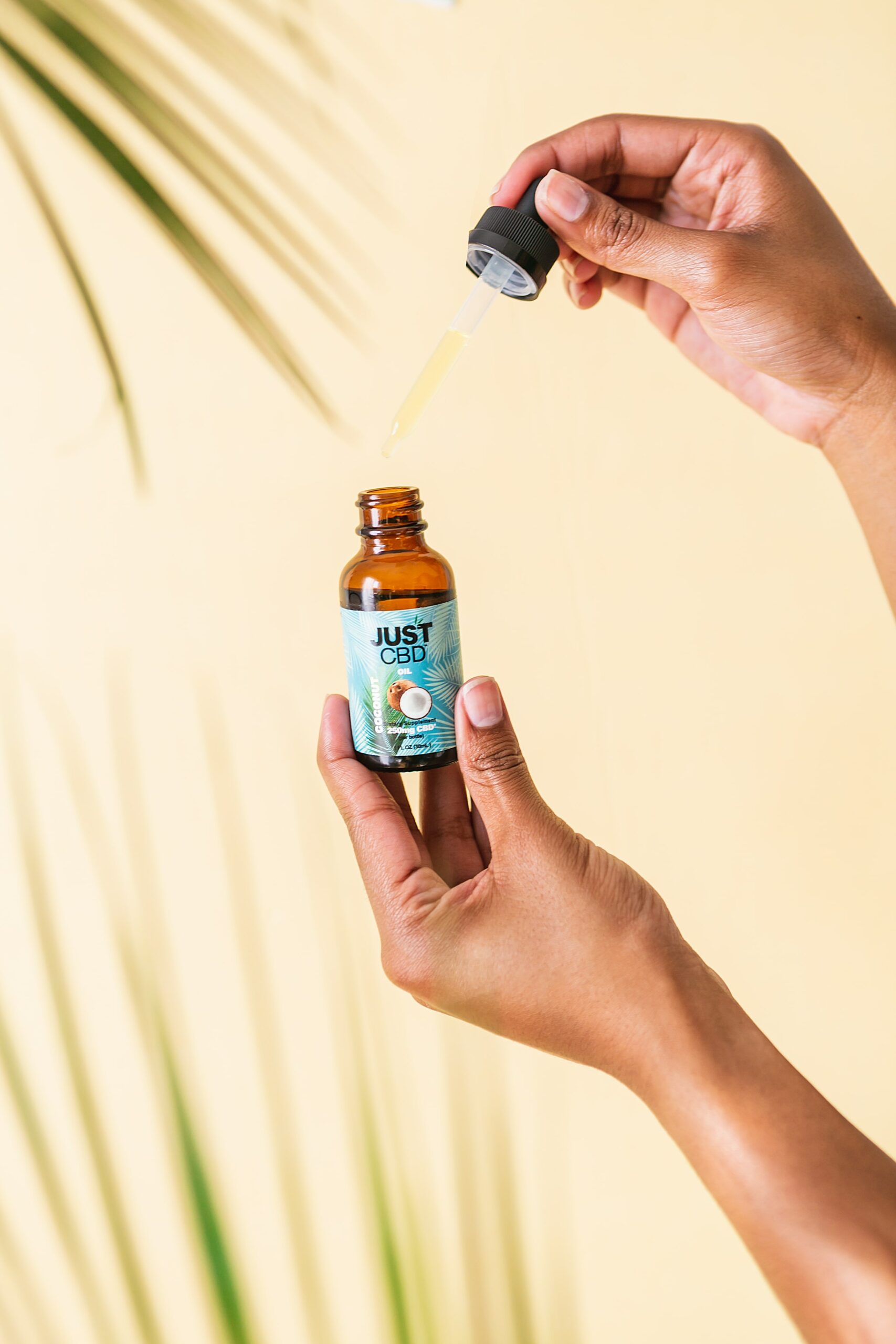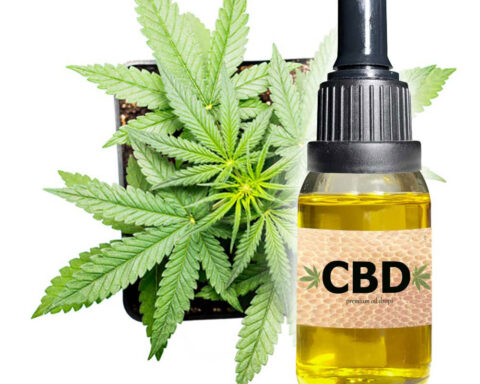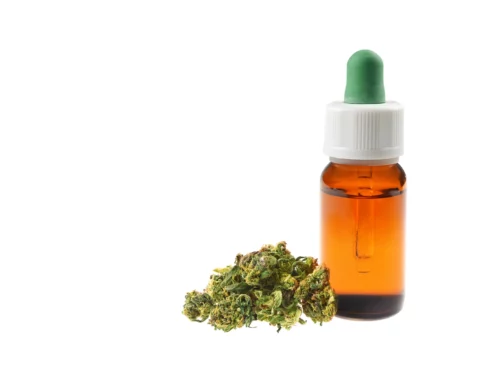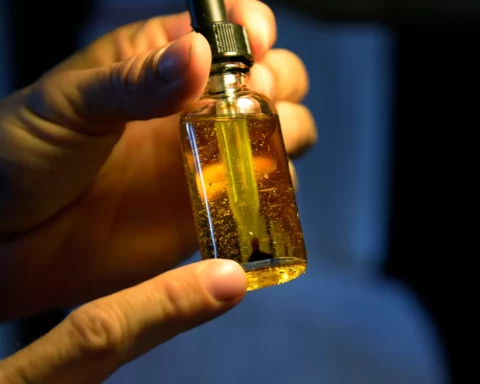Beautiful, moisturized, hydrated skin- that’s what everyone dreams of; to look sleek and be in his best skin condition. Yet, many have not seen this dream come true, with the majority giving up on the quest to have good skin. Some creams people use to enhance skin appearance make the skin tenderer, subjecting it to sunburns and other attacks. What’s more, not every one of the ingredients in the cream is healthy, and some make the skin predisposed to cancer and other conditions. Many people globally suffer from acne, and some creams only worsen things. As such, one may wonder if natural skin therapies may be better and if CBD could be the answer. While initial research may suggest in this blog that CBD oil may improve the skin condition, it does not market the cannabinoid for skin solutions since there is not enough scientific evidence to give CBD oil credit for skin solutions, nor has the FDA approved CBD oil for skin problems.
Can CBD Oil Help Your Skin?
Many people suffer from acne, which turns out to be the world’s most common skin condition. As such, many creams, including CBD oil creams, serums, and topicals, have been developed for the skin. Nonetheless, initial research that implies CBD oil could help the skin has not unearthed enough scientific evidence to give CBD oil credit for solving skin conditions or enhancing the skin. As such, using CBD oil for the skin is a personal choice, but it is worth noting that the FDA has not approved CBD oil for skin, nor has it set a recommended dose, so whoever goes for CBD oil for the skin should consult a doctor beforehand, at least to know how to go about the dosage.
The Endocannabinoid System and CBD Oil- How the Cannabinoid Interacts With the Body
A lot remains unknown about CBD oil, including how it works or interacts with the body. Yet, if CBD oil could indeed help with the skin, it would have everything to do with how it interacts with the body. Studies suggest that the human body has a modulating system consisting of enzymes, cannabinoids, and receptors (CB1 and CB2), forming the endocannabinoid system (ECS). The modulating system supposedly has receptors in the brain, hippocampus region, central and peripheral nervous systems, and critical organs in the body. Besides, studies suggest that through its receptors, the endocannabinoid system affects many processes and functions, including inflammation, pain, temperature regulation, hormone secretion, and could also affect the skin. Still, there is a need for further studies to prove the existence of the endocannabinoid system and confirm its interaction with cannabinoids like CBD oil, so studies don’t recommend CBD oil products for the skin. Below is what it says about CBD oil and the skin.
CBD Oil for Skin Infections
Admittedly, many people use CBD oil for the skin for various reasons. One reason is that they believe that, somehow, CBD oil could help with infections in the body and skin, preventing them from affecting the skin. One study by Andre, et al., (2016)., suggests that cannabis plants may have antibacterial and antifungal properties, fighting bacterial and fungal infections on the skin and the body. Of course, this sounds promising, but more study is needed to prove that CBD oil indeed has the properties linked to it.
Could CBD Oil Be the Best Anti Aging Substance Ever?
We all want to look young, and this is just a natural feeling since we are created with eternity in our hearts. Nonetheless, aging is an inevitable process that science cannot stop. Nonetheless, one study suggests that CBD oil may have anti-inflammatory effects that fight inflammation to stop cell damage that fastens aging. Another study run by Iffland & Grotenhermen, (2017)., established that CBD oil could have antioxidant properties, suggesting that it could help fight free radicals and their accumulation in the cells that would result in oxidative stress. Yet, oxidative stress and inflammation are the two primary factors that trigger medical challenges and fasten aging. Nonetheless, further studies are important before recommending it as an antiaging substance.
Can CBD Oil Help Acne?
Acne is the most common skin condition affecting millions, if not billions, of people in the world. While many factors, including food, environmental conditions, cosmetic products one uses, allergy to certain substances, and hygiene, may trigger or worsen acne, the blackening and spotting of the skin happens because of excessive sebum production. One study done by Oláh, et al., (2014)., examined sebocytes and sebum and identified the former as the producer of sebum. CBD oil is believed to work against excessive sebum production, through which it could minimize acne breakouts. Still, there is a need for more advanced studies that show whether CBD oil could impact sebum production. Although CBD oil is believed to hydrate the skin and keep it moisturized, only more advanced studies can prove this true or false. In the meantime, the study does not recommend CBD oil for skin problems.
Should You Use CBD Oil for Skin Purposes?
Many people are more than willing to experiment with CBD oil topicals for their skin. Some of them have not had positive results with the conventional creams, while others want something more natural. Still, it is worth noting that CBD oil studies are limited and what we know about the cannabinoid is like sand in the ocean. As such, CBD oil for the skin is an unwise move, but whoever chooses this route should consult the doctor beforehand.
Conclusion
Many people are using CBD oil and its products to manage the skin as a way of exploring rather natural means because conventional treatments have not given them the best experience. Nonetheless, there is not enough evidence to credit CBD oil for solving skin problems. Still, if you choose CBD oil for the skin, talk to a doctor beforehand.
References
Andre, C. M., Hausman, J. F., & Guerriero, G. (2016). Cannabis Sativa: The Plant Of The Thousand And One Molecules. Frontiers In Plant Science, 7, 19.
Iffland, K., & Grotenhermen, F. (2017). An Update
On Safety And Side Effects Of Cannabidiol: A Review Of Clinical Data And
Relevant Animal Studies. Cannabis And Cannabinoid Research, 2(1),
139-154.
Oláh, A., Tóth, B. I., Borbíró, I., Sugawara, K.,
Szöllõsi, A. G., Czifra, G., … & Bíró, T. (2014). Cannabidiol Exerts
Sebostatic And Antiinflammatory Effects On Human Sebocytes. The Journal Of Clinical Investigation, 124(9), 3713-3724.
- Bell Peppers 101: Nutrition Facts and Health Benefits - April 19, 2024
- Products That Assist with Stress Relief - September 21, 2023
- TRÈFLE – THE ROAD TO THE 15TH - July 29, 2023









